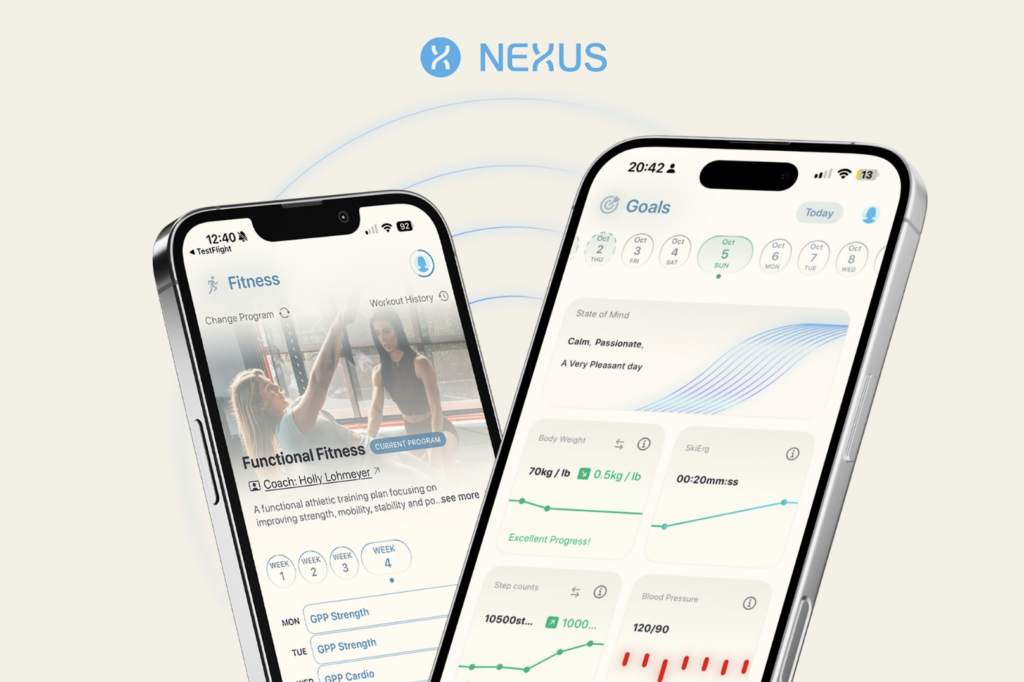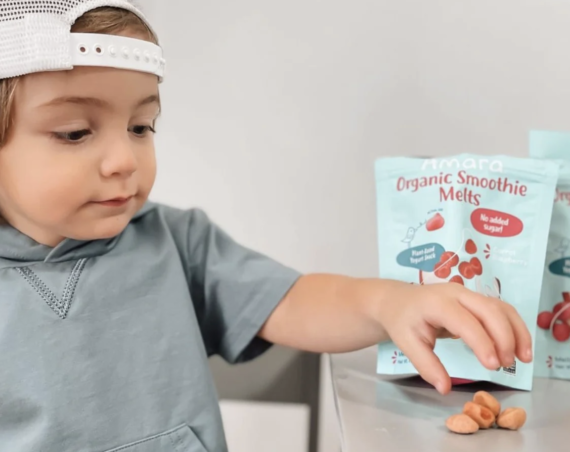
Leo Tyson has spent over a decade watching women piece together their health data across multiple apps – a cycle tracker here, a nutrition app there, maybe a fitness program somewhere else – with no single platform connecting the dots.
“I hear a lot from women that their lifestyle doesn’t match how they actually feel,” said Tyson, founder of Nexus. “They feel like they’re doing all the right things, but it isn’t reflected in how they feel in terms of energy, pain, brain fog, mood.”
Today, Nexus launches in the UK App Store – an iOS app that consolidates cycle tracking, fitness programming, nutrition guidance, and an AI health coach named Nova into one platform. What sets it apart is 54,000 possible onboarding combinations that personalize the experience from the start.
The Fragmentation Problem
Tyson began his career as a personal trainer and nutritionist. When he noticed his female clients weren’t responding the same way as male clients, he dug deeper into female-specific physiology. A pattern emerged: women would come to him after experiencing medical gaslighting, told nothing was wrong but knowing something wasn’t right.
When clients couldn’t afford his coaching, there was nowhere to send them. Even coaching one-on-one, he struggled with fragmentation – using Google Sheets, cycle trackers, nutrition apps, and supplement platforms, manually pulling screenshots to connect patterns.
“Nutrition and fitness apps might recommend reducing calories or training more, while cycle trackers suggest rest during certain phases,” he explained. “None of these services screen for conditions like hypothalamic amenorrhea or eating disorders.”
Nexus builds everything natively so users can track their cycle, log workouts, monitor nutrition, sync wearables, and chat with Nova – all in one app where the data can actually communicate.
How Nova Actually Knows You
The key difference with Nova is contextual awareness. Most AI health tools require users to manually provide context with each interaction. Nova has access to all user data within the app – cycle history, workout patterns, nutrition logs, and wearable data.
Nexus built a proprietary AI architecture with its own LLM, underpinned by a curated database of 500,000 words of peer-reviewed research. Crucially, Nova can automatically adjust app recommendations based on conversations – something impossible when AI and other tools are separate products.
A rules-based engine prevents conflicting guidance across features. If a user logs severe pain but is training intensely, the app flags the connection and suggests reducing training. The system also addresses a problem Tyson identified in Nexus’s white paper on cycle trackers: women feel disappointed because expectations aren’t met.
“What women are often expecting is that their cycle tracker recreates health coaching – a guided approach with actionable insights,” he said. “But cycle literacy is an important part of the conversation, not the sole reason you experience all your symptoms.”

Business Model and the Trainer Play
The Nexus team includes Tyson as founder, co-founder and CTO Kishan Kumar, founding team members Holly Lohmeyer as head coach overseeing community and training programs, and Izzy Prior as head of marketing. Clare Simpson leads product development. The company also works with medical and scientific advisors, including Dr. Clare Kelly, who writes the pre and postnatal programming.
Nexus targets health-conscious, active women aged 27 to 43 – roughly 2.27 million women in the UK. The app has had 70 beta testers using it consistently since April.
The company has raised £170,000 from angel investors to date. Nexus will be free initially, with paid features for nutrition personalization, meal plans, and fitness programs.
Beyond direct-to-consumer, Tyson is building a white-labeled offering for personal trainers.
“The majority of personal trainers say they’re hesitant to implement female-specific approaches or ask questions about cycles and symptoms because they don’t feel they understand enough,” he said.
His response: trainers don’t need to fully understand the underlying physiology to make appropriate adjustments. The same logic that applies to modifying workouts for sleep-deprived or dehydrated clients applies to someone experiencing menopause symptoms or certain phases of their cycle.
The white-labeled product will include his course on female physiology for fitness professionals, allowing trainers to coach clients through personalized programming while accessing education themselves.
What’s Next
Following today’s launch, the goal is 3,000-5,000 downloads in the first two weeks. Longer term, Nexus aims to become a Category 1 medical device that can automatically flag symptom patterns suggesting undiagnosed conditions and provide advocacy packs with specialist recommendations.



